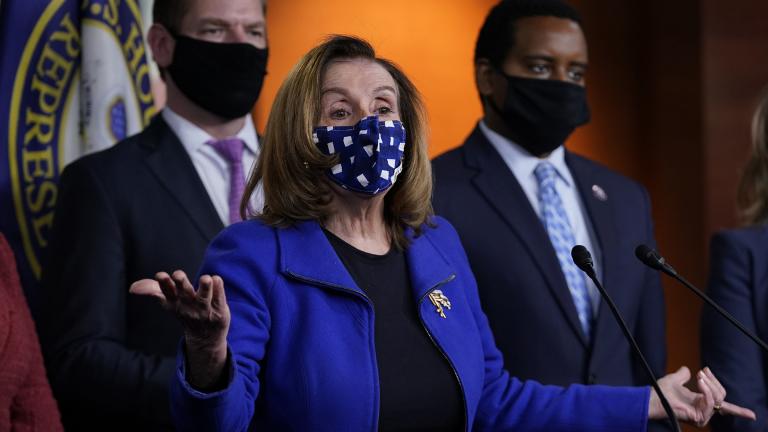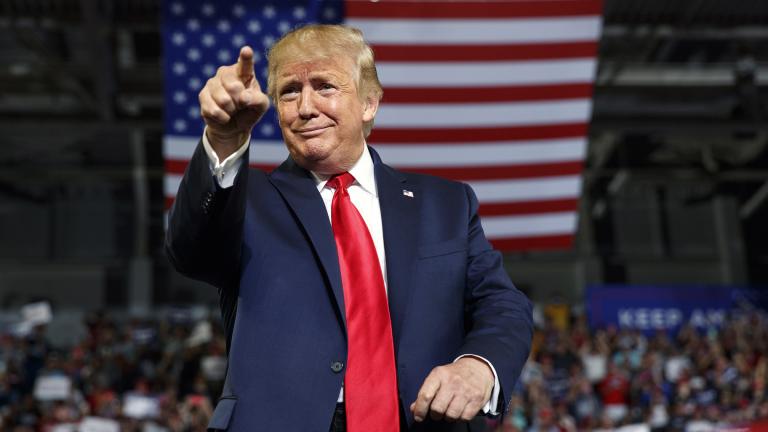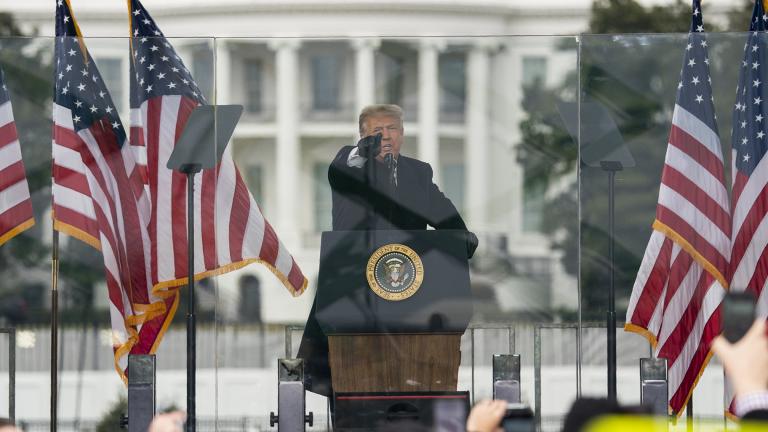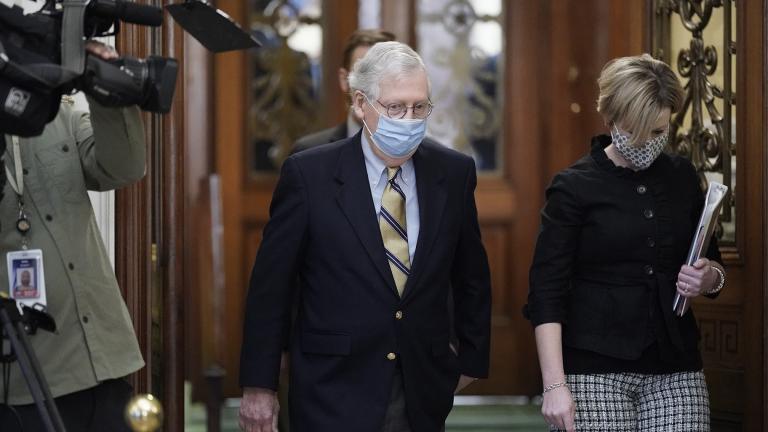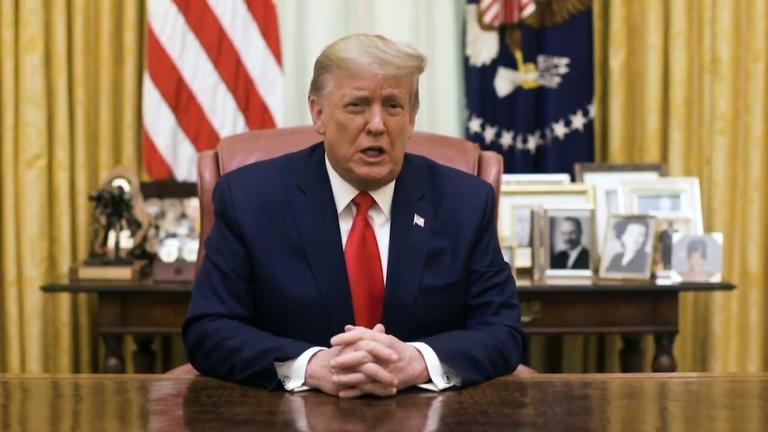After a two-week recess, the battle over President Donald Trump’s impeachment trial has resumed, but former national security adviser John Bolton’s announcement that he would be willing to testify before a Senate trial may have changed the dynamics of the fight.
Bolton said Monday he would testify if subpoenaed by the Senate. That has increased the pressure on Senate Majority Leader Mitch McConnell to allow witnesses to be called.
McConnell had appeared content to call House Speaker Nancy Pelosi’s bluff over what he called her “mythical leverage” as she resisted transmitting articles of impeachment from the House to the Senate until Democrats have some assurance that witnesses would be called.
On the floor of the Senate on Tuesday, McConnell accused House Democrats of “treating impeachment like a political toy.”
But Minority Leader Chuck Schumer challenged that characterization.
“If any Senate Republican opposes issuing subpoenas to the four witnesses and documents we have requested that would make it absolutely clear they are participating in a cover-up,” Schumer said.
Where that leaves the process is anyone’s guess as the Constitution says “very little” about how the impeachment process should proceed, according to former Illinois Solicitor General David Franklin, who now teaches constitutional law at DePaul University.
“The Constitution just says that the Senate has the sole power to try impeachments and the House has the sole power of impeachment, but it leaves it up to each of those bodies to set their own rules,” said Franklin.
Carolyn Shapiro, associate professor of law at IIT Chicago-Kent College of Law, said Trump’s impeachment and Pelosi’s refusal to transmit articles to the Senate has brought us into uncharted territory.
“The Constitution is silent on this point,” said Shapiro. “It certainly seems that the Constitution does not contemplate that the House would impeach someone and then not give the Senate the opportunity to take the next constitutional step.”
She said the move reminded her of McConnell’s refusal to consider Judge Merrick Garland’s Supreme Court nomination in that it might not have been explicitly unconstitutional but that it seemed inconsistent with what the framers of the Constitution had intended.
“I’m uncomfortable with (Pelosi) never sending the articles to the Senate but I think there’s a lot to be said for her saying we are not sending these to you so that you can just dismiss them without consideration. That seems equally inappropriate,” said Shapiro. “We have a lot of grey area here.”
Senate Judiciary Committee Chair Lindsey Graham said Sunday that if the House does not submit the impeachment articles to the Senate this week then he would push to change the rules to proceed to trial without them. And according to Shapiro, there appears to be nothing in the Constitution to stop him from doing that.
“I don’t think the Constitution really speaks to any requirement that the articles of impeachment be formally submitted to the Senate. It’s always been done that way but the impeachment happened. We know what the articles are so it is not clear to me that there has to be a formal submission,” said Shapiro.
Franklin said that ultimately, McConnell is playing a stronger hand.
“After a reasonable period of negotiation I think there is an obligation to send them over,” said Franklin. “I also think it is bad politics not to.”
However, if Democrats are unable to reach an agreement over calling witnesses in the Senate trial, Pelosi could opt to reopen impeachment hearings in the House. And with Bolton already saying he would comply with a Senate subpoena it would likely be difficult for him to refuse to testify before the House.
“There’s no equivalent to double-jeopardy in the impeachment context. The House can open a new impeachment at any time for any reason,” said Franklin. “And at least as a matter of politics or public relations it would be surpassing strange (if Bolton refused a House subpoena).”
While Senate Republicans may opt to proceed with a trial without calling relevant witnesses, if they do, the judgement of history is unlikely to be kind, according to Shapiro.
“What we have from the House is essentially an indictment,” said Shapiro. “Nobody ever said that the evidence in a criminal trial is limited to the evidence presented to a grand jury. That’s ridiculous. So the idea that there might be relevant evidence that speaks to the factual allegations underlying the articles and that the Senate is just going to refuse to hear it, that would seem to suggest an utter lack of good faith.”
Shapiro said Trump’s actions with regard to withholding aid to Ukraine to benefit himself politically was “clearly impeachable conduct.”
“The unwillingness to grapple with that in any serious way, I don’t know how the politics of this is going to play out – I can’t answer that. But the verdict of history is going to be clear,” she said.

